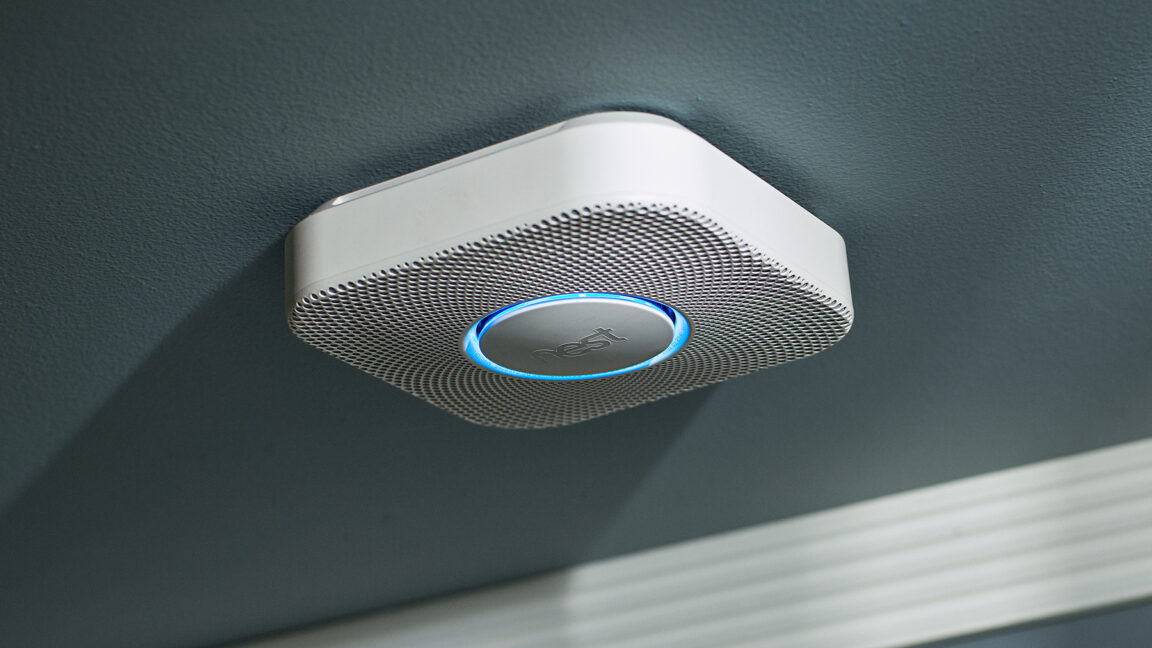
Google discontinues Nest Protect smoke alarm and Nest x Yale lock
arstechnica.com
Empty Nest Google discontinues Nest Protect smoke alarm and Nest x Yale lock Google continues backing away from smart home hardware. Ryan Whitwam Mar 28, 2025 3:29 pm | 22 Credit: Google Credit: Google Story textSizeSmallStandardLargeWidth *StandardWideLinksStandardOrange* Subscribers only Learn moreGoogle acquired Nest in 2014 for a whopping $3.4 billion but seems increasingly uninterested in making smart home hardware. The company has just announced two of its home gadgets will be discontinued, one of which is quite popular. The Nest Protect smoke and carbon monoxide detector is a common fixture in homes, but Google says it has stopped manufacturing it. The less popular Nest x Yale smart lock is also getting the ax. There are replacements coming, but Google won't be making them.Nest launched the 2nd gen Protect a year before it became part of Google. Like all smoke detectors, the Nest Protect comes with an expiration date. You're supposed to swap them out every 10 years, so some Nest users are already there. You will have to hurry if you want a new Protect. While they're in stock for the moment, Google won't manufacture any more. It's on sale for $119 on the Google Store for the time being. The Nest x Yale lock. Credit: Google The Nest x Yale lock. Credit: Google Likewise, Google is done with the Nest x Yale smart lock, which it launched in 2018 to complement the Nest Secure home security system. This device requires a Thread-enabled hub, a role the Nest Secure served quite well. Now, you need a $70 Nest Connect to control this lock remotely. If you still want to grab the Nest x Yale smart lock, it's on sale for $229 while supplies last.Smart home hangoverGoogle used to want people to use its smart home devices, but its attention has been drawn elsewhere since the AI boom began. The company hasn't released new cameras, smart speakers, doorbells, or smart displays in several years at this point, and it's starting to look like it never will again. TV streamers and thermostats are the only home tech still getting any attention from Google. For everything else, it's increasingly turning to third parties.The Nest Protect will be replaced soon by a First Alert smoke and carbon monoxide detector. This device will work with Google Home, as well as the First Alert app, and it can integrate with an existing Nest Protect network. It even looks a little like the Nest version. The feature set is similar, too, with in-app early warnings for alarms, voice alerts, and support for both wired and battery setups. It will retail for $129.99 when it launches in the coming months. The First Alert smoke detector (left) and Yale Smart Lock with Matter (right) will replace Google's hardware. Credit: Yale and First Alert The First Alert smoke detector (left) and Yale Smart Lock with Matter (right) will replace Google's hardware. Credit: Yale and First Alert As for the smart lock, Google has partnered with Yale once again. However, the Nest name is nowhere to be found. The Yale Smart Lock with Matter is launching this summer, and as the name implies, it works over the newer Matter connectivity standard but will also have Thread. It will integrate with Google Home with all the same features as the old lock. It does look a lot more like a modern Google device, even though Google's name isn't on it.This is a less severe version of Google's approach to Nest Secure. When Google got tired of supporting its lavishly expensive and underperforming security product, it bricked the hardware. In compensation, Google offered a third-party system from its new partner ADT. Google isn't doing the same with the Nest Protect or the Nest x Yale smart lock (for now), so it's safe to buy them if you don't want to wait on the outsourced hardware.Ryan WhitwamSenior Technology ReporterRyan WhitwamSenior Technology Reporter Ryan Whitwam is a senior technology reporter at Ars Technica, covering the ways Google, AI, and mobile technology continue to change the world. Over his 20-year career, he's written for Android Police, ExtremeTech, Wirecutter, NY Times, and more. He has reviewed more phones than most people will ever own. You can follow him on Bluesky, where you will see photos of his dozens of mechanical keyboards. 22 Comments
0 Comments
·0 Shares
·56 Views


